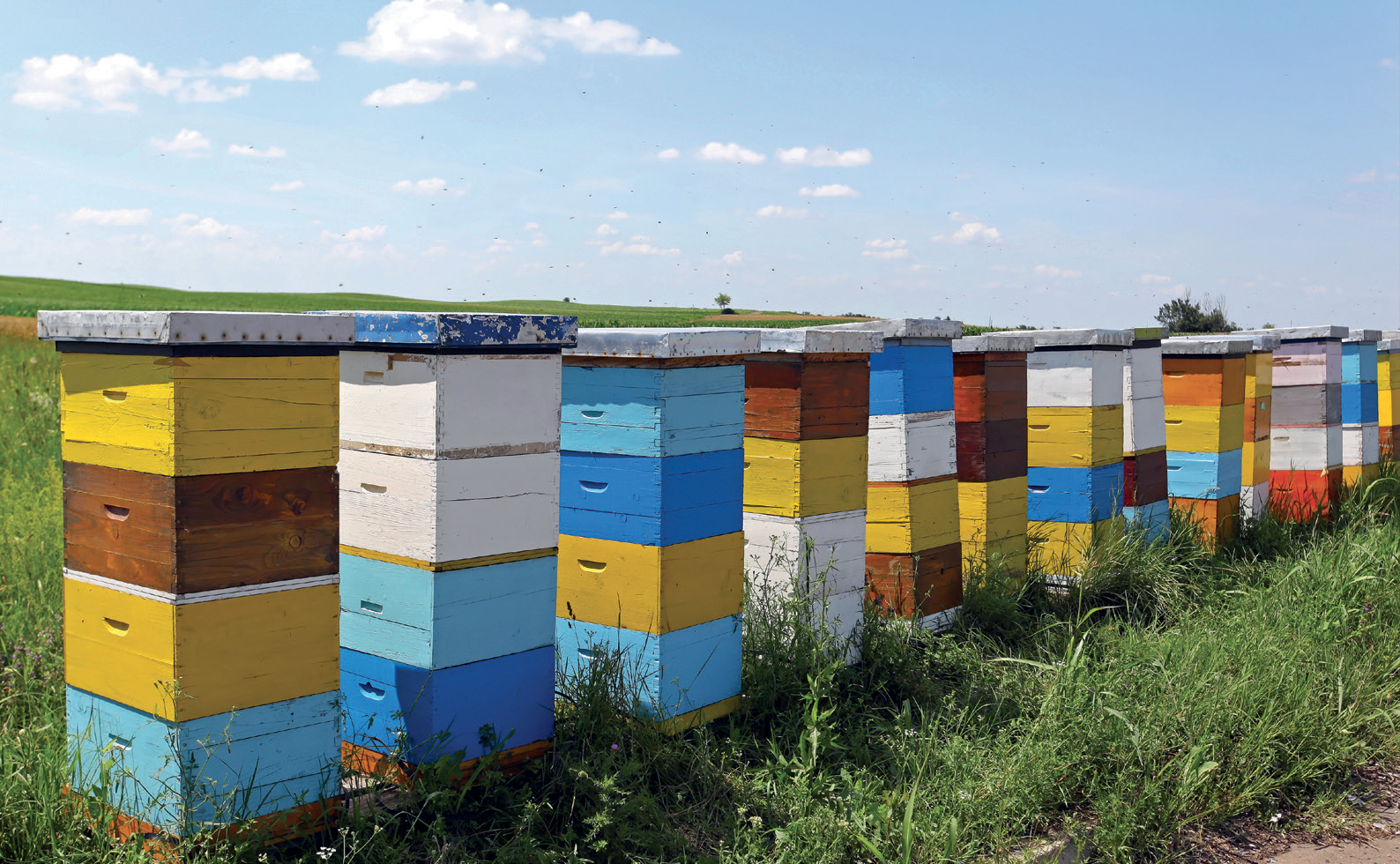Country -
Sweet rewards

While the concept of beekeeping on a lifestyle property comes with definite benefits and a sense of living the good life, it’s far more than simply a rite of passage for rural block owners.
Around the country, the demand for hives continues to rise – particularly post-COVID as people look to more natural food sources, and to do their part for the planet – but those actively working in the sector caution that there’s a whole lot more to keeping bees than just the feel-good factor and pots of honey.
Our agricultural and horticultural sectors are indebted to bees for pollination, with honey bees accounting for around 80 percent of all insect pollination.
Apiculture New Zealand supports and advocates for the apiculture industry from backyard beekeepers to commercial operators and honey exporters and says apiculture is a $5 billion industry.
This encompasses honey and bee products, plus the value assigned to the role bees play in pollination for our horticultural and agricultural sectors.
According to its website, there were 804,756 registered beehives in New Zealand as of August 2021; of those registered beekeepers, 75 percent were considered hobbyists, operating 10 hives or fewer.
The number of hobbyists has escalated over the past five years – up 45 percent – while the number of those with 11 to 50 hives increased by 50 percent.
Globally, bee populations are increasingly under threat from viruses, climate change, loss of habitat and pesticide use, but New Zealand’s strict biosecurity legislation and best-practice beekeeping protocols have led to largely-healthy bee populations.
Every beekeeper has a legal obligation under the Biosecurity Act 1993 to register hives via the Ministry for Primary Industries (MPI), to comply with New Zealand’s American Foulbrood Pest Management Plan and other biosecurity thresholds.
There are several pathways to beekeeping for lifestyle block owners, from outright purchase of hives and colonies with self-management of all stages of the process, through to contracting the services of professional beekeepers to supply, maintain and manage hives on your property – with the bonus of some jars of honey or a viable income stream depending on the chosen plan.
Auckland-headquartered company Beezthingz started operating in 2000, when the threat of the bee-destroying varroa mite loomed over the city and they set about rescuing bee colonies.
It began renting out beehives to allow property owners to host bees with the benefit of reliable and traceable beekeeping services, and has grown to become one of the country’s largest beehive rental businesses with a nationwide network of experienced and qualified beekeepers.
Its services are currently available in greater Auckland including both Rodney and Franklin districts, Wellington, Hamilton, Bay of Plenty, Rotorua, Taranaki and Christchurch.
South Auckland-based Beezthingz expert beekeeper Ibrahim Mohammad says they’ve seen a surge in demand from both lifestyle block owners and suburban backyard clients wanting to host bees on their properties.
“They like the pollination benefits, to feel they are helping foster a healthy environment for bees and to hopefully get some honey from the hives,” he says.
“If they lack confidence to look after a bee colony themselves, then we have options for fully-serviced beehive rentals which allows them to feel part of the process from start-up through to honey extraction.
“We maintain and service the hives for the property owners, and while we usually rent out the hives there is also an option of owning the colonies and then engaging us for maintenance and servicing as and when required.”
Ibraham says if the hives are rented from Beezthingz, they would generally register the hives on behalf of the owners, otherwise all hives need to be registered with MPI by the colony owner for traceability purposes.
He says there’s more to keeping hives than just plonking them down in a far corner of a property and leaving the bees to do their thing.
“Before placing a hive, you must ensure there’s a viable and safe flight path for the bees and that they have a water source.
“The careful placement of hives – considering bees forage in a three to five-kilometre radius from the hive – taking neighbours and other external factors into consideration, is important.
“Mistakes commonly made by inexperienced hive owners result from overcrowding within hives, having too many hives in one location, and a general lack of beekeeping knowledge.
“Some people like the idea of keeping bees, but not the day-to-day management and that’s where we come in as bees do require quite a lot of attention.”
Ibrahim says aside from the invaluable pollination contribution bees make, there are potentially health and wealth benefits, too.
“Honey from your own environment is known to ease hayfever, as your system gains immunity to local pollens.
“And if you have tracts of Manuka on your property, then there is potential to partner for share-cropping whereby landowners can get upwards of 25 percent of the honey crop.”
Beezthingz initial visit to a property is free, and will identify a suitable place for the hives.
Once agreement is reached and a rental/service plan is in place, Beezthingz takes care of the bees including callouts, disease checks, varroa mite control measures, checking store levels, site registration, swarm prevention and collection.
“Property owners are welcome to join us during inspections to observe our beekeeping techniques and methods, as the education side of things is important to us,” says Ibrahim.
Depending on the chosen plan, there are options available during harvest season for how honey is supplied.
For those lifestyle block owners wanting to be more hands-on themselves, but requiring additional support, Beezthingz offers services to provide pollination, bee stock growth and advice around honey production.
“Some properties have land that’s not as accessible for hobbyist beekeeping so we can offer a transparent management contract utilising a hive management software system and do all the work to generate some real profit from marginal land,” explains Ibrahim.
For more information around beekeeping see:
Read more...